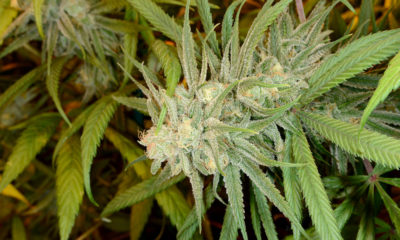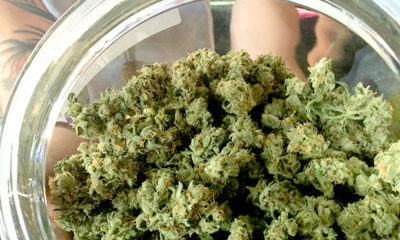
Medical
Zimbabwe Becomes Second African Country to Legalize Medical Marijuana
Zimbabwe, seemingly an unlikely candidate, has just become the second African nation to legalize medical marijuana. Given that Zimbabwe is traditionally one of Africa’s more closed societies, this is a hopeful sign — both that things are loosening up there after the recent fall of its long-ruling strongman and for an eventual liberalization of the marijuana economy across the continent.
The southern African nation of Zimbabwe has legalized marijuana for medical and scientific use. The official notice issued April 27 by the government stated that individuals and businesses will be allowed to apply for licenses to cultivate cannabis for these purposes.
The notice, published by the Health Ministry in the national daily newspaper Harare Herald, made clear that the Zimbabwe medical marijuana program is going to be tightly controlled. Applicants for the licenses must submit detailed plans of their proposed production site and yield. Those applying for licenses must be Zimbabwean citizens or residents, or must also seek a waiver to be issued by the health minister. Those previously convicted of drug offenses are to be barred from applying.
In what is officially dubbed the “Production of Cannabis for Medicinal and Scientific Use Regulations,” Zimbabwe’s health minister, Dr David Parirenyatwa, said license will also be denied if it is seen as “likely to create a risk to public health, safety or security, including the risk of cannabis being diverted to an illicit market use.” Cultivation of cannabis — known regionally as “mbanje” or “dagga” — is currently punishable by up to 12 years in prison.
The fact that Zimbabwe has been a closed society for decades makes this development even more meaningful. First, it points to growing space for freedom following the ouster of the country’s longtime leader Robert Mugabe in November, with new President Emmerson Mnangagwa pledging to “re-engage with the world.” However, in an indication of how things are still done in Zimbabwe, the Production of Cannabis regulation seems to have been unilaterally issued by the executive, not voted up by the country’s legislature, the House of Assembly.
It also seems a positive sign for the daylighting of the marijuana economy across Africa.
Despite harsh prohibition, there is already a thriving “dagga” economy throughout southern Africa — and some fractures in the prohibitionist edifice.
Last year, the independent mountain kingdom of Lesotho, which is bordered on all sides by South Africa, issued the first cannabis cultivation license ever on the African continent. The license, granted in September, went to South African firm Verve Dynamics. Cannabis is already Lesotho’s primary cash-crop — and the country’s economic mainstay. Since the job market in neighboring South Africa contracted some 10 years ago, authorities in Lesotho have been using cannabis as a kind of economic safety valve. The law simply goes unenforced, under what some have called a “de facto decriminalization.”
South Africa itself, the region’s largest economy by far, also now has a vigorous legalization movement, demanding cannabis be allowed as a solution for the country’s struggling farmers, who have been hit hard by globalization.
March 2017 saw a big step forward for “dagga” in South Africa, when a court in Cape Town ruled that the country’s cannabis prohibition law is “unconstitutional,” asserting that adults have the right to use, grow or possess in the privacy of their homes. The decision is not as meaningful as it superficially seems, as it only permits the law’s unconstitutionality to be used a defense — so arrests can technically continue. The court gave South Africa’s government two years to pass a new marijuana law that is up to constitutional muster.
The first year has now passed, and the moves by Zimbabwe and Lesotho put greater pressure on South Africa to make provisions for legal cultivation.
TELL US, do you have access to medical marijuana?





















